As reporters of our school and community, we believe we must share and respect all student voices. Over the last year, we have covered controversial and underrepresented topics, including gender-neutral bathrooms, critical race theory and other ethnic issues. These stories shed light on the struggles that our friends and peers face every day, yet they also leave the door open for students to voice their own opinions.
We strive to make our newspaper inclusive and leave an open comment section for students to voice their opinions on articles freely. Whether using their fake or real names, students have taken advantage of the comment section by questioning minorities for their personal beliefs and practices: their arguments are primarily supported by religious beliefs.
We don’t believe in hindering anyone’s freedom to share their beliefs and opinions through our publication—as long as it doesn’t make any students feel threatened, unsafe or belittled at school by their peers. We respect and celebrate all forms of religion at our school, but we will not allow our publication to become a tool for using religious beliefs to disrespect minorities.
It’s essential to recognize that many religions and religious people are inclusive of others. Therefore, this is not a battle against religion or the positive impact it can have on peoples’ lives.
Although everyone has the right to express their religion freely, these ideals should not be weaponized in secular systems, especially when it comes to public education. It is important to realize that individuals who engage in this conversation are often not full representations of their religious background.
With these notes in mind, the Pathfinder advocates for taking religion out of the discussion. In saying this, we are not encouraging the villainization of religion or inhibiting people’s right to worship. We just need to stop using religious beliefs as a supporting argument in secular settings.
Religion and the state government
According to an email from Dr. Keith Marty regarding hate speech, our school mission is for all students to know they are safe and belong in our schools and community.
Schools should be safe places where students are protected and supported in their religious practices and beliefs. However, one student’s religious beliefs should not infringe on another’s right to secular public education.
Case law has established limits on how much religion should influence public education. The famous 1925 Scopes Monkey Trial is related to teaching Darwinism evolution in school. It tested this boundary, but the issue was dismissed on a mere technicality and never fully resolved. It wasn’t until 1968 that Epperson v. Arkansas established an Ark. law as unconstitutional. The Establishment Clause of the First Amendment cited the Bible as the reason not to teach evolution in schools. This created a separation of church and state in public education.
The Establishment Clause prohibits practices or programs that “aid or oppose any religion” from public schools. Regardless of the intent, religious persuasion in public education settings can negatively impact students.
However, there is a fine line between the limits of the Establishment Clause and the Free Exercise Clause. People have the right to free exercise their religion, but how far can students go in practicing their religion in a school setting? This question was answered in Santa Fe Independent School District v. Doe.
The case attempted to decide if the school should allow student-run prayers to be announced over the loudspeakers on game days. The Supreme Court found that prayers cannot be announced to the whole school, even when initiated by a student. Students who listen will associate the religious practice with their public school and the government by proxy.
Contrasting beliefs are hard to handle in the case of a dispute. In public schools, these arguments should remain respectful and secular, but recent issues in the news have not reflected those values. This is particularly evident in how we discuss issues facing LGBTQ youth.
A bill developing in Tennessee bans institutional material that aims to normalize or support actions of the LGBTQ community. It argues that these conversations are not appropriate in a school environment. The bill suggests that gender and sexual orientation should not be taught in grades K-12 because “the promotion of LGBT issues and lifestyles in public schools offends a significant portion of students, parents and Tennessee residents with Christian values.”
We cannot allow religious values to shape bills in general, much less bills related to public education. Religious beliefs hold no weight in this context.
Religion in a school environment
However, applying this principle to everyday situations left our Editorial Board split. Consider the following hypothetical situation: 28 members of a 30-person varsity football team decide to lead a private, student-run prayer before a game. The other two members, who are either atheist, agnostic or practice a different religion, are given the option to join in and potentially feel uncomfortable or abstain and feel left out.
What is the right decision here? As introduced above, Santa Fe Independent School District v. Doe would argue that this is okay because it’s an optional and private expression of religious worship. Students’ right to freely practice their religion in ways that don’t affect others is protected under the First Amendment.
However, on the other side, this practice can hurt the other two students. Even though the prayer would be optional, when many students engage in activities like this as a team, it can cause feelings of otherness and isolation. Many minority groups throughout history have experienced trauma from religious otherness. Minorities may also feel pressured to participate in religious activities that they do not believe in only because the rest of their team is doing the same.
Members of our Editorial Board who grew up in minority religious families remember their parents just telling them to grin and bear it when they were younger and not cause a scene. Other members remember that their church teaches them to freely practice their religion in public spaces. If seeing and being around prayer encourages students to seek out religion, it is a net positive for the world. These instilled practices in children pose two different sides of the same coin. Yet, one of them directly pressures people into participating in a religion they do not believe in, especially in secular settings.
Religion in our community
The role of religion in shaping societal standards is an issue that will never be fully resolved in our society. However, bridging the gap between those guided by religious scriptures and those who are not is an issue that has come up in our history time and time again.
As mentioned before, we support all of our peers regardless of their religious beliefs, gender or sexuality. Our newspaper is a safe place for everyone, and we encourage positive, respectful discussion on any issues, however controversial. Debating issues that we strongly believe in is a practice that challenges our perspectives, educates us and helps us to understand our peers better. Therefore, if you would like to discuss the above hypothetical or the rest of the article, we encourage you to leave a respectful comment.
We urge all of you to remember the power of your words before commenting on controversial stories, speaking out in social studies classes or making a joke that might come off as insensitive. The utmost priority is to make our school a safe and comfortable place for everyone regardless of their religious beliefs or lack thereof.

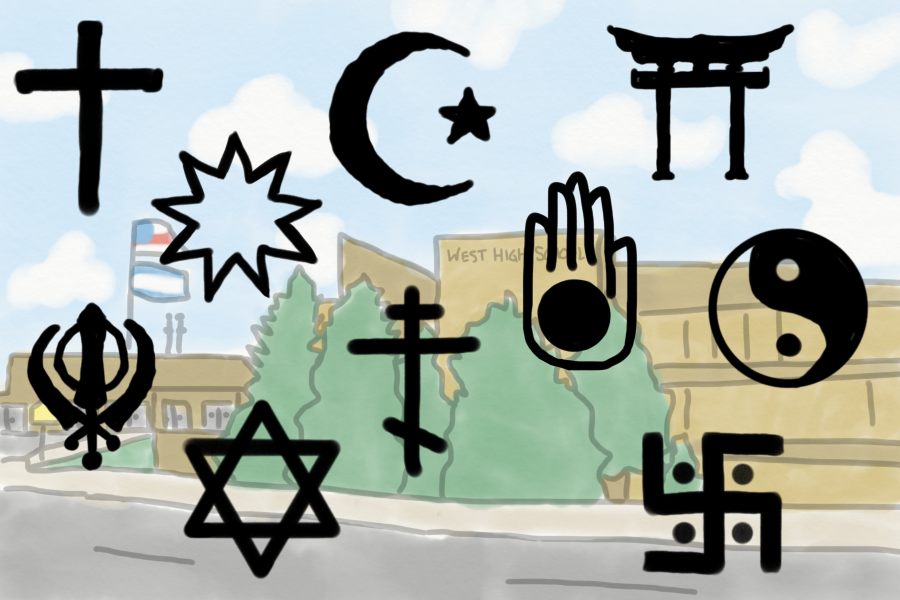

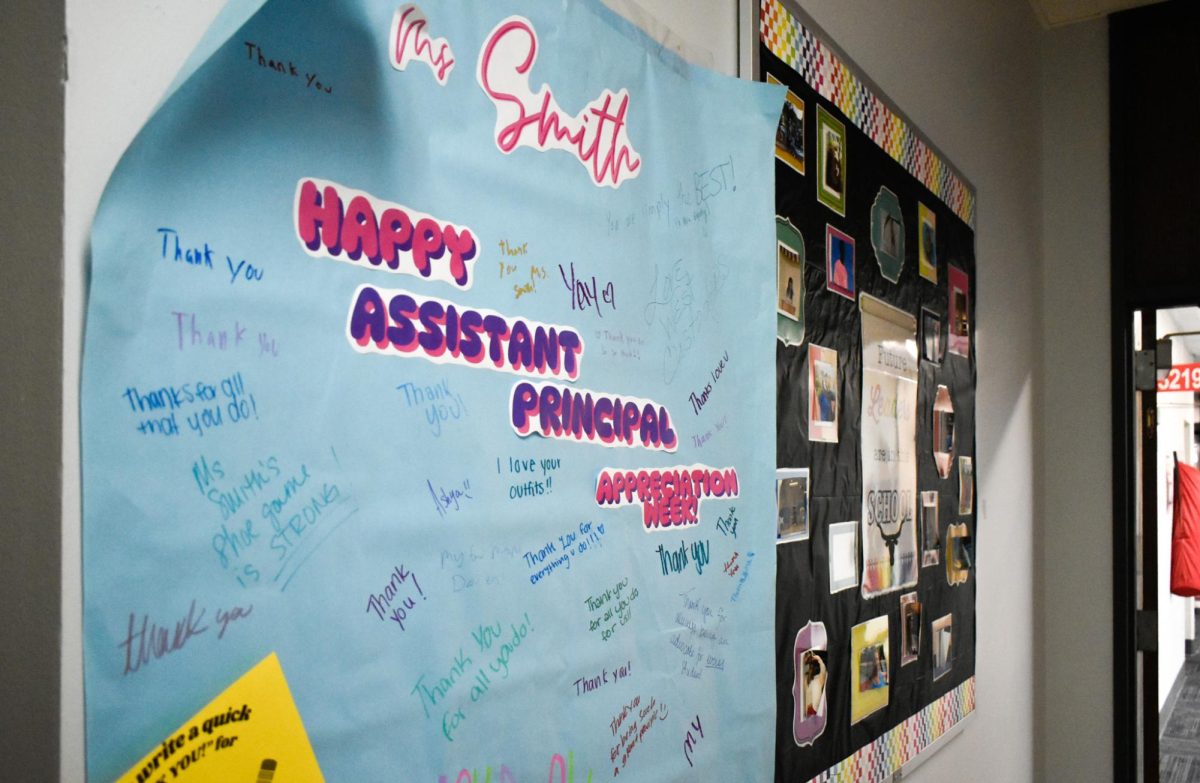
![Red, white and blue, the American flag holds the values of our democracy. The fight that we once endured has returned, as student journalists and senior correspondents across the country are losing their voices due to government control. “[Are] the White House and [the] government limiting free speech [and] freedom of the press? Yes [they are],” chief communications officer of the Parkway School District and former journalist Elisa Tomich said.](https://pwestpathfinder.com/wp-content/uploads/2025/03/Untitled-design-14.jpg)
![A board in the Parkway West counseling department displays pennants of selective universities. With a wide range of students interested in attending, it’s important that these schools have clear priorities when deciding who to admit. “[Washington University] had the major that I wanted, psychology, philosophy, neuroscience. That's a holistic study of the brain, and [WashU is] the only college in the world that offers that. That's the main reason I wanted to go; I got into that program,” senior Dima Layth said.](https://pwestpathfinder.com/wp-content/uploads/2025/02/Flag-1.png)
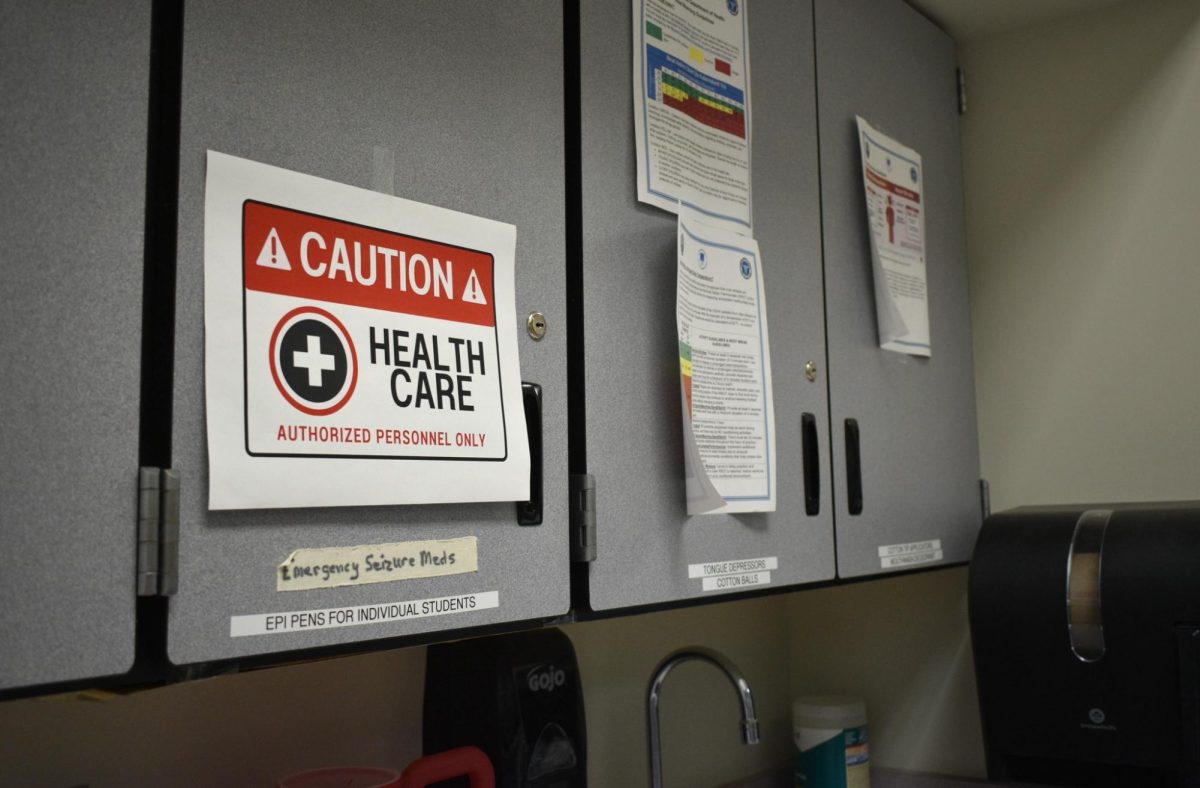
![Within the U.S., the busiest shopping period of the year is Cyber Week, the time from Thanksgiving through Black Friday and Cyber Monday. This year, shoppers spent $13.3 billion on Cyber Monday, which is a 7.3% year-over-year increase from 2023. “When I was younger, I would always be out with my mom getting Christmas gifts or just shopping in general. Now, as she has gotten older, I've noticed [that almost] every day, I'll open the front door and there's three packages that my mom has ordered. Part of that is she just doesn't always have the time to go to a store for 30 minutes to an hour, but the other part is when she gets bored, she has easy access to [shopping],” junior Grace Garetson said.](https://pwestpathfinder.com/wp-content/uploads/2024/12/DSC_0249.JPG-1200x801.jpg)
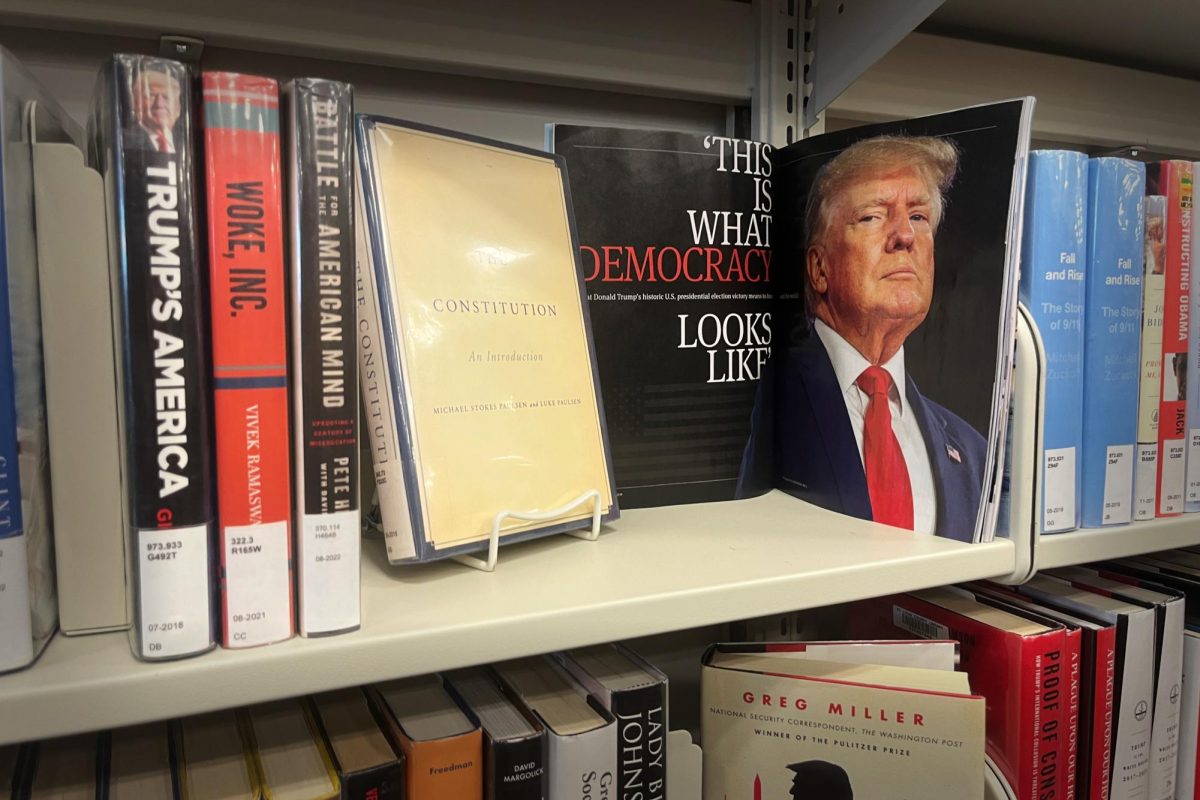
![Senior Sally Peters stands in the history hallway, contemplating her choices in the 2024 United States and Missouri elections on Nov. 5. As a member of Diplomacy Club, Peters has discussed key candidates and issues in contemporary American politics. “[As students], we're starting to become adults. We're realizing how much the policies that are enforced and the laws that make it through the House and Senate are starting to affect us. [Opportunities such as] AP [U.S.Government] and Diplomacy Club [make elections feel] a lot more real,” Diplomacy Club vice president and senior Nidhisha Pejathaya said.](https://pwestpathfinder.com/wp-content/uploads/2024/10/Flag-1-1.png)
![Mounting school pressure can leave many students overworked and overstressed. Schools must give students the necessary resources to help assuage student mental health issues and prevent the development of serious crises. “The biggest thing [schools] can do [to protect student mental health] is offer more time [to do work], like a study hall, or offer more support from teachers so that students don't feel stressed out and can get help in areas that they need,” senior Bhavya Gupta said.](https://pwestpathfinder.com/wp-content/uploads/2024/09/unnamed-4.jpg)
![Like many students, sophomore Medina Nanic experiences pressure to do well in school. Through continuous success and achievements, West has developed a high academic standard for students. “Because we’re seen as one [of] the better schools, we have higher standards than the [schools] who aren’t ranked as high. There’s a lot of pressure on students to do [well] and live up to those standards,” Nanic said.](https://pwestpathfinder.com/wp-content/uploads/2024/05/DSC_0029-2-1200x800.jpg)
![Junior Fiona Dye lifts weights in Strength and Conditioning. Now that the Trump administration has instituted policies such as AI deregulation, tariffs and university funding freezes, women may have to work twice as hard to get half as far. "[Trump] wants America to be more divided; he wants to inspire hatred in people,” feminist club member and junior Clara Lazarini said.](https://pwestpathfinder.com/wp-content/uploads/2025/05/Flag.png)
![As the Trump administration cracks down on immigration, it scapegoats many immigrants for the United States’ plights, precipitating a possible genocide. Sophomore Annabella Whiteley moved from the United Kingdom when she was eight. “It’s pretty scary because I’m on a visa. When my visa expires next year, I’m not sure what’s going to happen, especially with [immigration] policies up in the air, so it is a concern for my family,” Whiteley said.](https://pwestpathfinder.com/wp-content/uploads/2025/05/DSC_0077-7copy.jpg)
![Shifting global trade, President Donald Trump’s tariffs are raising concerns about economic stability for the U.S. and other countries alike. “[The tariffs are] going to pose a distinct challenge to the U.S. economy and a challenge to the global economy on the whole because it's going to greatly upset who trades with who and where resources and products are going to come from,” social studies teacher Melvin Trotier said.](https://pwestpathfinder.com/wp-content/uploads/2025/05/MDB_3456-1200x800.jpg)

![Pitching the ball on Apr. 14, senior Henry Wild and his team play against Belleville East. Wild was named scholar athlete of the year by St. Louis Post-Dispatch after maintaining a high cumulative GPA and staying involved with athletics for all of high school. “It’s an amazing honor. I feel very blessed to have the opportunity to represent my school [and] what [it] stands for,” Wild said.](https://pwestpathfinder.com/wp-content/uploads/2025/05/unnamed-6-1200x714.jpg)
![Freezing in their position, the Addams Family cast hits the “rigor mortis” pose after cast member and senior Jack Mullen, in character as Gomez Addams, calls out the stiff death move. For the past four months, the combined company of cast members, orchestra pit, crew and directors all worked to create the familial chemistry of the show. “I’m excited for [the audience] to see the numbers, the music, the scenes, but I also just love all the technical aspects of it. The whole spectacle, the costumes, makeup and the people that put in the work backstage in order to make the show successful on stage. I’m excited for people to see and appreciate that,” Mullen said.](https://pwestpathfinder.com/wp-content/uploads/2025/03/DSC0116-1200x800.jpg)
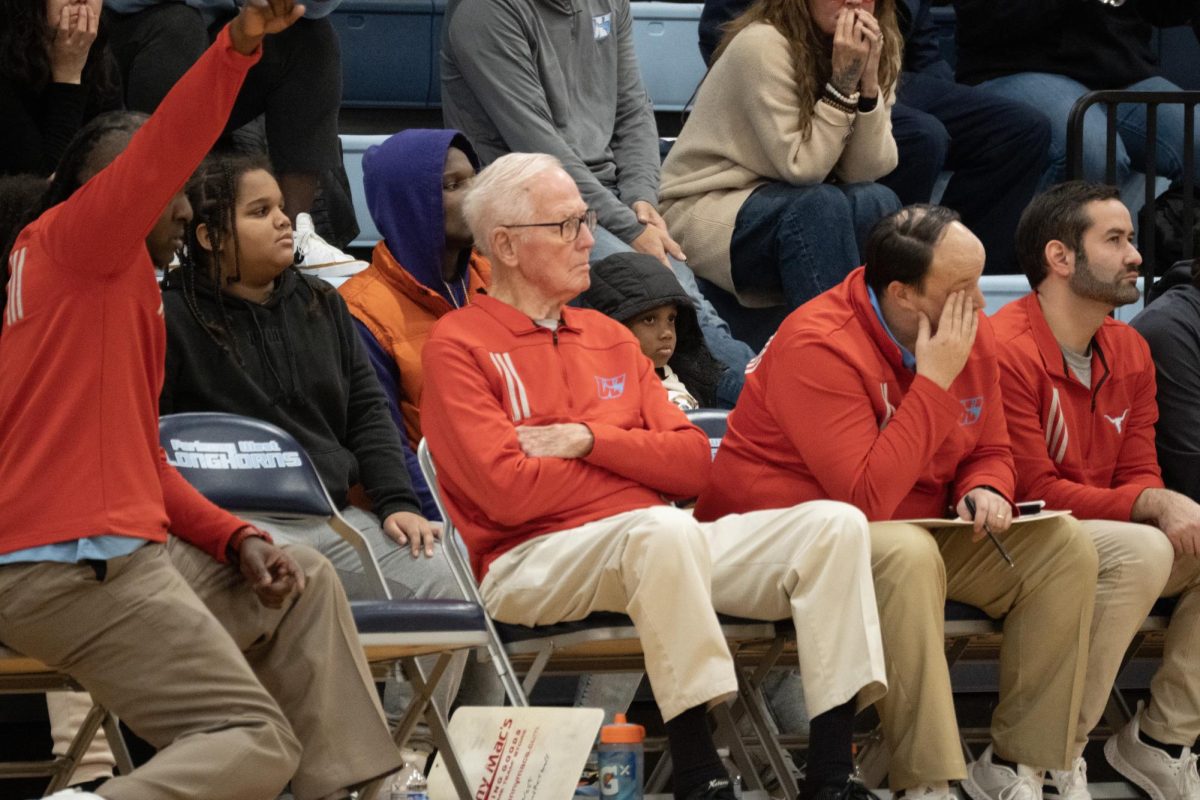
![Some of the most deadly instances of gun violence have occurred in schools, communities and other ‘safe spaces’ for students. These uncontrolled settings give way to the need for gun regulation, including background and mental health checks. “Gun control comes about with more laws, but there are a lot of guns out there that people could obtain illegally. What is a solution that would get the illegal guns off the street? We have yet to find [one],” social studies teacher Nancy Sachtlaben said.](https://pwestpathfinder.com/wp-content/uploads/2025/01/DSC_5122-1200x800.jpg)
![Complex global supply chains supply the goods for everyday luxuries, such as the coffee at West High’s Blue Brew. Low tariffs enabled much of the prosperity of modern history. “Higher tariffs lead to higher costs. A tariff is a tax on an imported good, and someone has to pay for that tax, and typically that [will] end up impacting consumers,” economics teacher Rachel Money said.](https://pwestpathfinder.com/wp-content/uploads/2024/12/Flag-1.png)
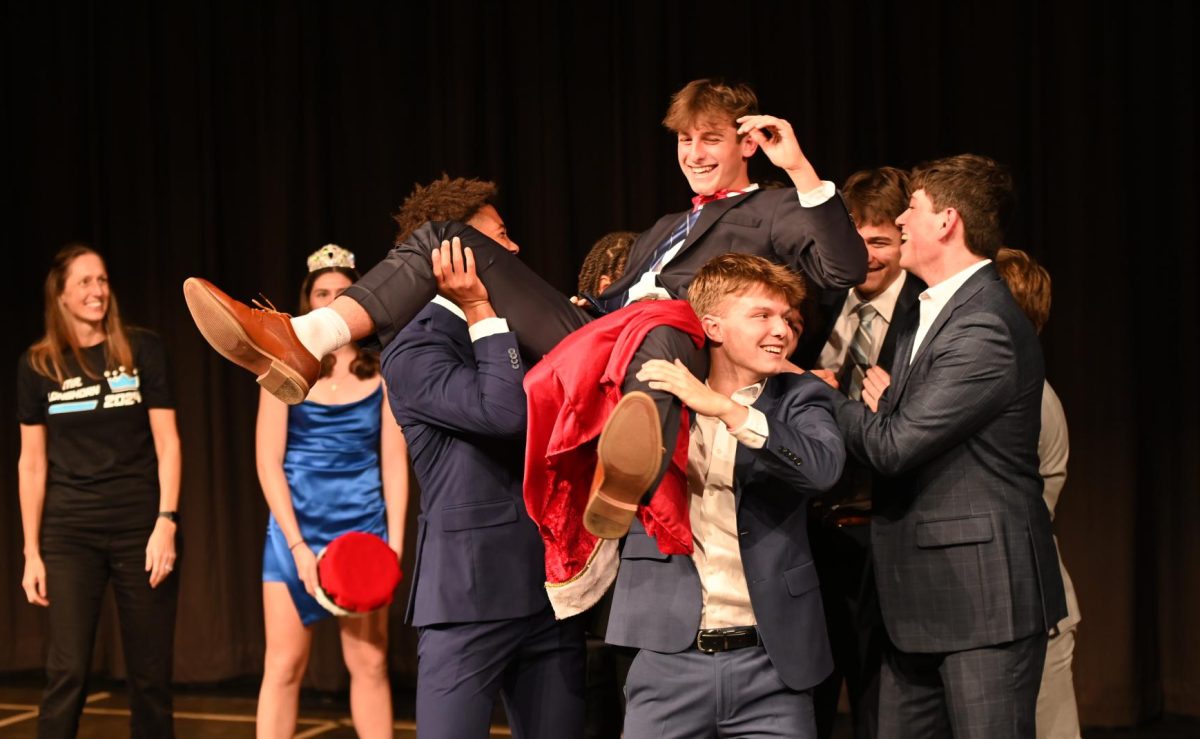
Will Gonsior • Jan 10, 2023 at 1:14 pm
Great article.
“We just need to stop using religious beliefs as a supporting argument in secular settings” is a line that stuck out to me. I love how it leaves open (the article even later encourages) the possibility of religious beliefs being the *main* argument while noting that it’s kind of ludicrous to use beliefs that not everyone will agree on to judge other topics.
There was a theme I didn’t like (I 100% acknowledge that this kind of article is impossible to write in a way that keeps everyone happy.)
“The utmost priority is to make our school a safe and comfortable place for everyone regardless of their religious beliefs or lack thereof” was a good quote (aside from the fact that everyone has a “religion” insofar as that is defined as whatever people believe in and worship). However, setting people’s “utmost priorities” for them is *quite literally* what this article is trying to avoid. I agree with the idea that a school newspaper should push “utmost priorities” for people, and I don’t like the fact that this article pushes against the sheer idea of bringing faith into education. Pushing back on religious discrimination is something that I can definitely get behind. That is a dogma that the newspaper pushes and that I agree in. Pushing back on religion in schools as a general, universal rule outside of just this school is a dogma that I do not agree on, and here’s why:
It is clear that this newspaper (and this school) wants to be “respectful and secular,” which is perfectly fine. I’m actually quite glad that this admission is made. It brings me back to the great Chesterton quote “Every education teaches a philosophy; if not by dogma then by suggestion, by implication, by atmosphere. Every part of that education has a connection with every other part. If it does not all combine to convey some general view of life, it is not an education at all.” This comes from the idea that the goal of education is to produce some ideal person who is theoretically better than before; and that there must be some standard by which we are measuring. When admitted, that might well be a secular standard. My school is secular and it attempts to bring up students who know more about how the world works by teaching them through a secular curriculum. This is perfectly okay. But what about a public school elsewhere, that is, perhaps, located in an officially Muslim country? Could it not attempt to raise students who know more about how the world works and who are strong followers of Islam? It’s at least as legitimate a standard as the one we use in America!
Lastly, this: “We cannot allow religious values to shape bills in general.” To which I respond: Yes, we can. And do. As is our constitutional right. As we have in America for its entire existence. Sure, we often fail miserably (just look at some stuff that got into the Constitution), but there are successes too. The capital-C Church played a role in the civil rights movement. The whole idea of all people being equal has a long history of being rooted in religion.
To determine whether a bill is good, you need a philosophy to measure it. Some philosophies are what most people would describe as “religious”. Some are rooted in other things such as tradition (also usually religious) or the general will of the people (often somewhat religious) or evolution or what will cause the most pleasure or the least pain for humans. Why are any of those less worthy than others?
Ah, yes, right. You’re a secular school. You push the secular ones. I guess that’s just doing your job.
Laurel Gillespie • Apr 7, 2022 at 7:49 pm
Well written with an attempt to show balance and basic respect for different views.
There is no easy balance between secular and religious beliefs.
Nancy Ramig • Apr 7, 2022 at 7:32 pm
This is a timeless article and identifies so many of the lines that have been drawn ‘in the sand’ that cause so much conflict. Yet, the priority to make school a safe place for all where acceptance and tolerance for individual differences and choices occurs is the only goal worth pursuing.